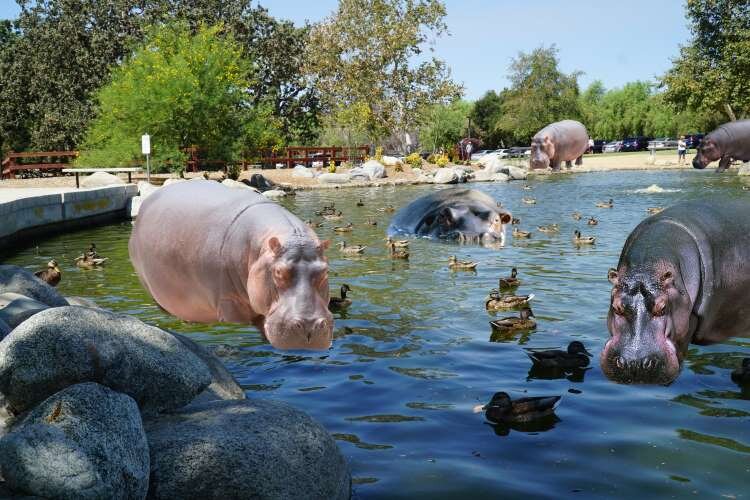Squawkless in Summerland? No! Check Out the Santa Barbara Bird Sanctuary
/It was not a planned visit.
My son and I were cycling from Carpinteria to Santa Barbara for the first time, enjoying a relaxing ride on Via Real/Lillie Ave, paralleling the 101 on the north side.
We passed a sign that said "McLeod Parrot Menagerie" and I heard birds, squawking birds. I said, let's check this out!
Little did I know that co-located at the Menagerie is the Santa Barbara Bird Sanctuary.
Squawkless in Summerland!? Heck no! Lots of squawking and talking going on at this place!
The Sanctuary is a non-profit organization founded by Jamie McLeod that rescues and rehabilitates parrots that are unwanted, abused and orphaned. The organization also finds homes for these beautiful animals.
The Sanctuary is home to over 60 of birds, some of which are ready for adoption; others may have conditions that prevent adoption.
We got the chance to chat with Jamie, who is 1984 graduate from the America's Teaching Zoo at Moorpark College. She showed us the Skylar Learning Center, where children can learn more about these interesting, long-lived, intelligent creatures.
And of course we visited with the birds and had meaningful conversations with many of them. We heard words and phrases like "hello," "knock knock," "how's it going," "I love you," and so on. Quite entertaining. And we caught a few cool head bobs too!
We also learned that the McLeod Parrot Menagerie provides grooming and boarding, toys and other parrot-related products and services.
The Santa Barbara Bird Sanctuary is a must see and less than an hour from central Thousand Oaks. Walk-in visits are available 10 am to 3:30 pm Wednesday through Monday. Fees for non-docent tours are $15 for adults and $10 for 12 and under (ages 2 and under free). Docent-led tours are available Wed-Sat for $30 (adults) and $20 (ages 3-12). Donations are welcomed (and tax deductible) as they help towards caring for and feeding the parrots. Docent-led personalized tours are also available with at least one week’s advance notice. You may observe the birds, but do not touch or feed them or their cages.
These fellows were quite entertaining.
To learn more, visit www.sbbird.org or visit their Facebook page at www.facebook.com/sbbsbirds or call 805.565.1807. The street address is 2430 Lillie Avenue, Summerland.















